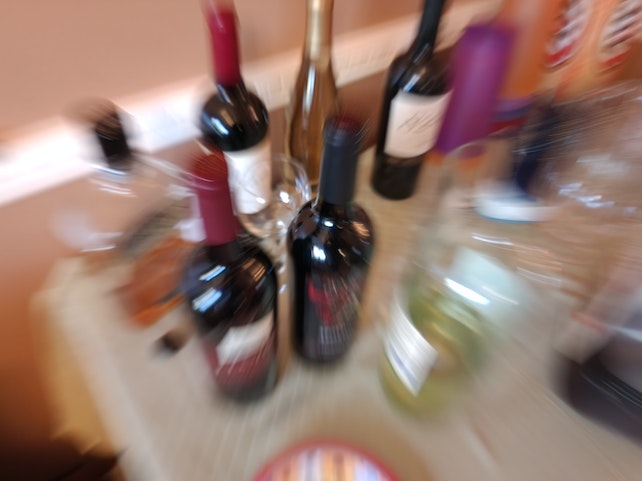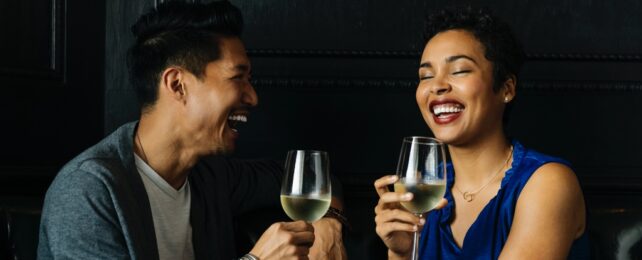Being under alcohol's influence doesn't make others appear more attractive, new research reports, but it can give people the confidence to initiate contact with someone they find attractive.
While it isn't the first time the phenomenon colloquially referred to as 'beer goggles' has been put to the test, the scientists behind the study claim their investigation is the first to systematically investigate this belief.
"One aspect of beer goggles missing from past experiments is the prospect that one might actually be able to meet, flirt, or perhaps engage intimately with a target," psychologists Molly Bowdring and Michael Sayette write in their published paper.
Male participants took part in two drinking sessions, which consisted of either mocktails or cocktails, and then rated strangers based on attractiveness.
To create a more realistic context, participants were told they could meet the individuals being evaluated. And each participant brought along a regular drinking buddy who also participated, intended to simulate the real dynamics of social drinking.
In a lab at the University of Pittsburgh, Bowdring and Sayette asked the pairs of pals, a total of 36 males aged in their twenties, to rate the attractiveness of strangers they saw in photos and videos. They were presented with 16 people on one visit and a different 16 on the second visit.
Each pair of friends was given an alcoholic cranberry juice cocktail to drink on one lab visit (enough to reach 0.08 percent blood alcohol concentration) and a similar but nonalcoholic beverage on the other.
They were told the people in the presented images were potential participants in a future study, one that they themselves might be invited to take part in. The participants were asked to rate the attractiveness of the people shown on a scale of 1 to 10.
Then, the men were asked to choose four of the people that they would most like to have conversations with in a future experiment.
Analysis found no correlation between participants' perceptions of others' attractiveness and their own level of intoxication.

"The well-known beer goggles effect of alcohol does sometimes appear in the literature but not as consistently as one might expect," Sayette explains.
But while under the 'spell' of alcohol, participants were 1.71 times more inclined to choose their top-four attractive choices for a potential rendezvous in future research, as opposed to their sober selves.
So, at least for men, science backs up the notion that a few drinks can provide liquid courage to help overcome inhibitions and approach someone they find physically pleasing.
The authors note that they restricted the study to the one sex because the social rewards of drinking are well proven for men. They aim to use their findings, along with prior research on social bonding, to justify a future study involving diverse genders.
Bowdring and Sayette suggest that the fact that drinking alcohol increases a person's willingness to interact with others can have a significant impact on social dynamics and should be considered in therapeutic settings.
For example, the thrill of socializing while under the influence of alcohol may be amplified because it raises the odds of mingling with captivating individuals.
Of course, it goes without saying that alcohol can have negative consequences like impaired judgment and decision-making, not to mention its effects on physical health.
"People who drink alcohol may benefit by recognizing that valued social motivations and intentions change when drinking," says Bowdring, "in ways that may be appealing in the short term but possibly harmful in the long term."
The study has been published in the Journal of Studies on Alcohol and Drugs.
